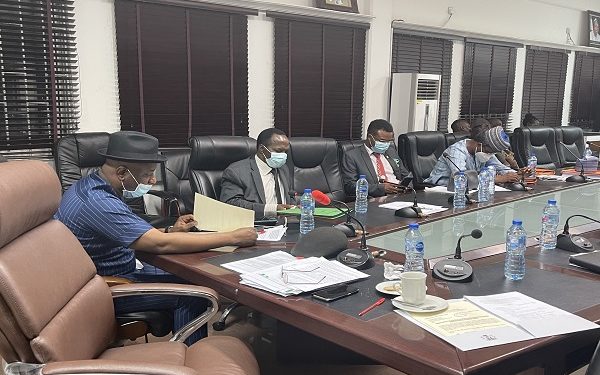
The industrial pond had become so poisoned that what ought to be routine practice, donned the garb of news oddity: the Federal Government and the National Association of Resident Doctors (NARD) agreement that a strike be shelved, since the issues leading to it are either fixed, or are in the process of being fixed.
“We don’t need strike anymore,” a near-jubilant Chris Ngige, labour and employment minister, announced in Abuja, “and they (resident doctors) agreed with me that we don’t need strike. So, it is work-in-progress. We thank them for the understanding they showed.”
Arome Christopher Adejo, the NARD first vice-president, returned the compliment: “If more Nigerians were like Ngige, this country would be a better place,” he gushed. “He has appealed to us and explained some things to us. We are reporting back to our NEC.”
On June 23, NARD had pushed out a communique, giving a four-week ultimatum, within which the Federal Government must meet its demands or face a fresh round of strikes.
Among those demands were payment of hazard allowances to living doctors, death benefits to the relatives of dead ones — and other health workers — under Group Life Insurance, and abolishing the contentious “Bench fees” (which NARD members pay to teaching hospitals, falling outside their original training institutions), which bill could be absorbed under the Residency Training Fund (RTD).
Other demands were paying doctors and other health workers’ arrears accruing from consequential minimum wage salary adjustments, and thrashing out issues of those migrating from the Government Integrated Financial and Management Information System (GIFMIS), to the Integrated Payroll and Personnel Information System (IPPIS).
On the eve of the deadline’s expiration, Dr. Osagie Ehanire, the health minister and his top aides invited the NARD leadership to a meeting, moderated by Dr. Ngige and his top officials, to thrash out the issues and avert a strike. Dr. Uyilawa Okhuaihesuyi, the NARD president, led his members to the meeting.
It is heart-warming that meeting appears to have successfully fended off the strike, though the NARD delegates still need to report to their National Executive Committee (NEC), before a formal rescinding could be announced. This is welcome progress from the abnormality-become-norm, where the government would wait till a strike is declared, before running from pillar to post, angling for “dialogue”.
Not only that. At the meeting, the government side showed concrete evidence of implementing — or at least, on-going processes to do so — previous agreements with NARD. That included cheques, which proved insurers were already paying families of dead doctors’ benefits.
There is also a budget of N4.3 billion, as RTD, which could tackle the “Bench fees” once and for all, including a firm commitment to reach the University College Hospital (UCH), Ibadan and the Lagos University Teaching Hospital (LUTH), Idi-Araba, Lagos — two tertiary trainers, NARD had fingered, that were insisting on the fee.
Indeed, Prof. Jeff Momoh, the chief medical director (CMD) of National Hospital, Abuja, and chairman of the Committee of Chief Medical Directors, is to serve on a special committee, chaired by the permanent secretary, Federal Ministry of Health, to sort out the “Bench fees” question.
“With all these and others, like consequential minimum wage salary adjustment arrears being taken care of,” Dr. Ngige declared, “we hope that the National Executive Committee of NARD, which is billed to meet sometime next week, will be happy; and encourage their officers to dialogue.”
Thousands of patients, who bear the brunt of public hospital strikes, certainly hope so too, for NARD members are live wires of the public health system. Indeed, this is a refreshing juncture that should become routine in Labour disputes.
Both the government and Labour unions should embrace this new-found culture of thrashing out industrial disputes before they peter down to disruptive strikes. There are simply too many strikes that do nothing but dislocate work; and further worsen the economy.
END

Be the first to comment